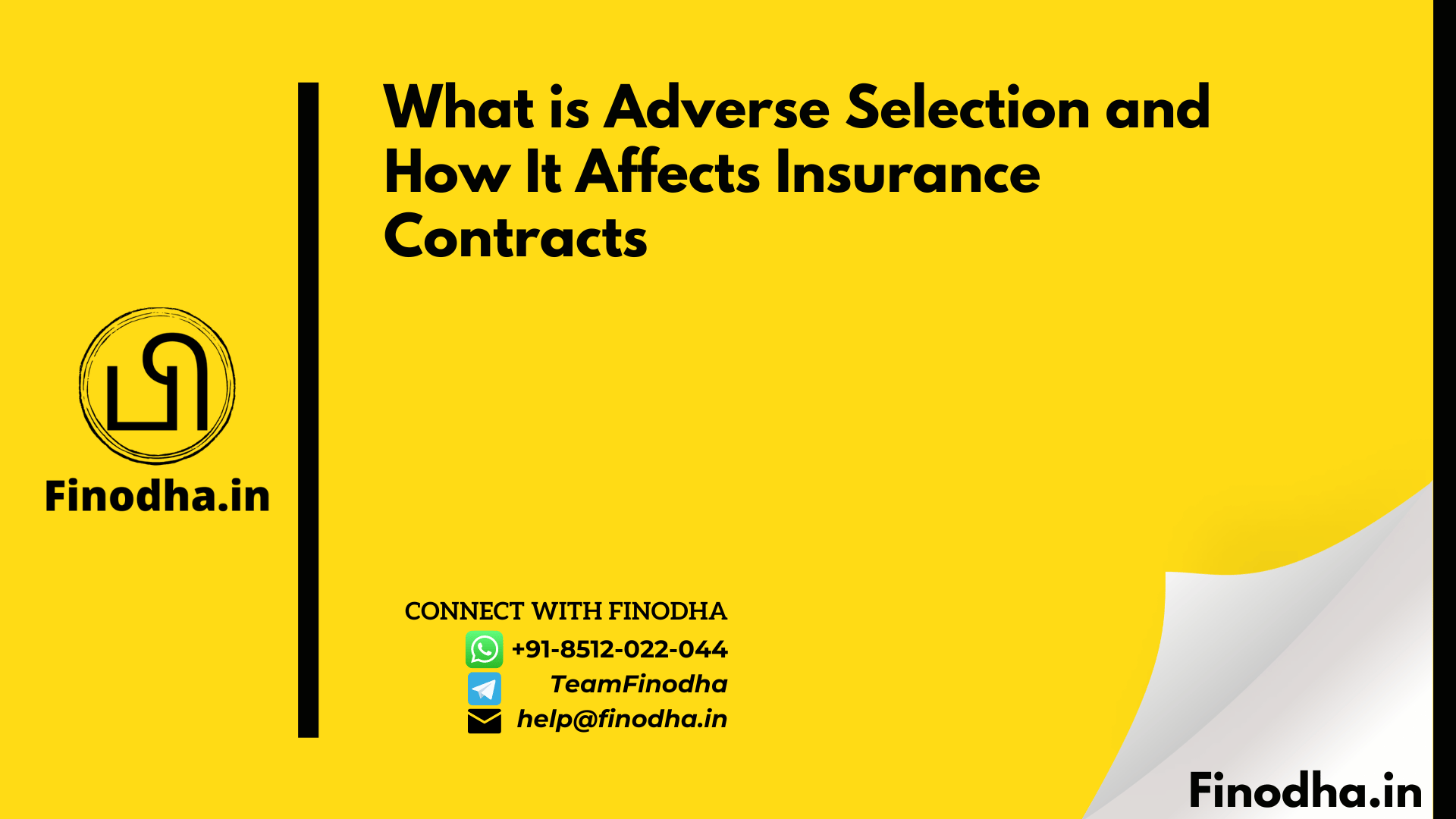Important Keywords: Insurance contracts, Underwriting, Risk, Premiums, Health, Lifestyle.
Table of Contents
Introduction of Adverse Selection:
When one party involved in a transaction has more information than the other party. This situation can lead to incorrect decisions, which can increase the risk of loss in commercial contracts. In insurance contracts, it happens when the buyer of the insurance has more information about their health and lifestyle than the insurer. This can result in the insurer having to charge higher premiums to avoid risk.
When a seller has more information about a product than a buyer, adverse selection can occur. This can lead to incorrect decisions and increased risk for the buyer. In insurance contracts, the insured may hide critical information about their health or lifestyle, leading to a higher risk for the insurer.
Insurance Contracts Insurance companies try to avoid adverse selection by identifying groups of people who are at higher risk than the general population and charging them higher premiums. Underwriting is used to evaluate potential insurance contracts, looking at factors like weight, height, medical history, and lifestyle.
Key Takeaways:
- It happens when one party has more information than the other in a transaction
- In insurance contracts, it can lead to higher premiums for the insurer
- Insurance companies use underwriting to evaluate potential insurance contracts and avoid adverse selection
Conclusion
It is a situation that can lead to incorrect decisions and increased risk in commercial contracts. In insurance contracts, adverse selection can lead to higher premiums for the insurer. To avoid this, insurance companies use underwriting to evaluate potential contracts and charge higher premiums for higher-risk individuals.
Official Income Tax Return filing website: https://www.incometax.gov.in/iec/foportal/
Official GST common portal website: https://www.gst.gov.in/




